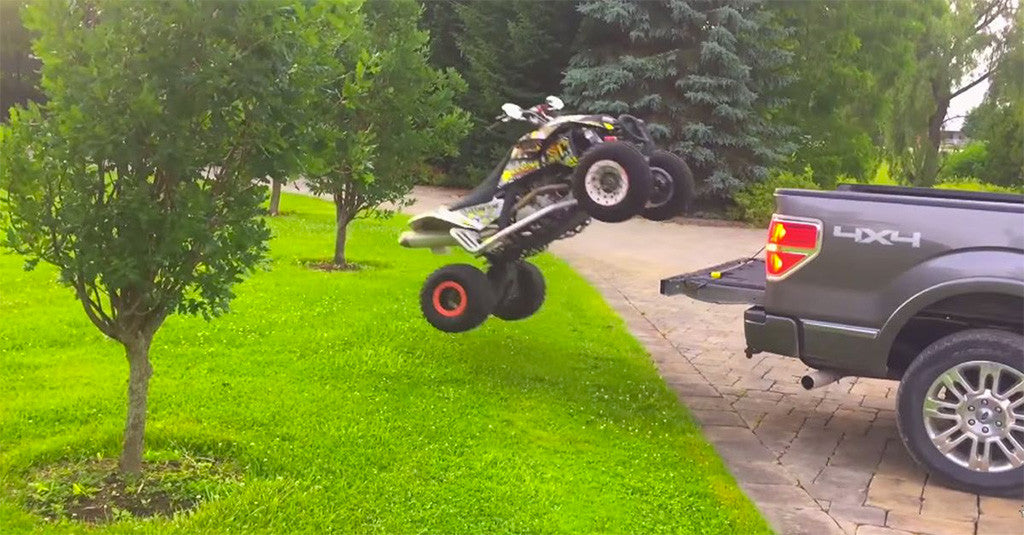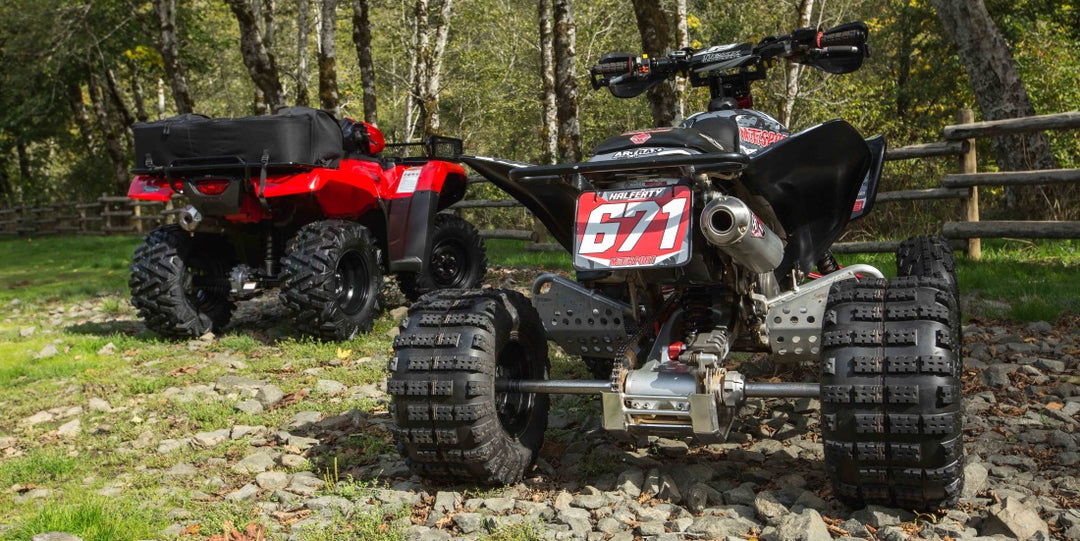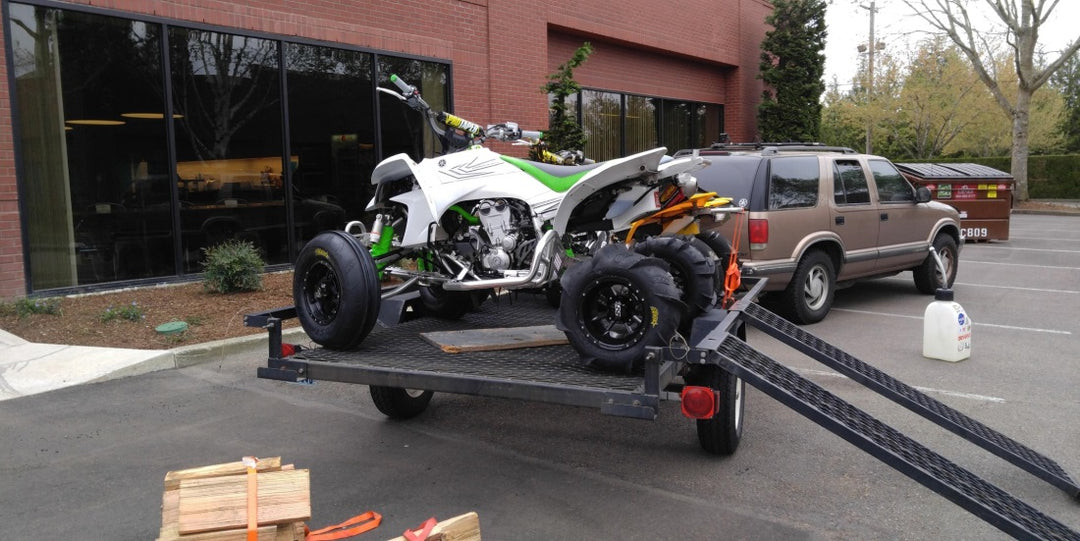Loading a two- or four-wheeler into the bed of your truck shouldn't be hard but so many, somehow, turn this venture into must-see TV.
Two rules come with loading your dirt bike, motorcycle or ATV into a truck bed. One should be hard fastened the other is highly recommended.
- Don't load it alone
- Don't ride it onto the truck

These machines are heavy. That's why you should never try and carry out this two to three-person job by yourself. But more importantly, even if you have five people, especially if one is videotaping, don't think for a minute climbing aboard, turning the engine on and riding up a ramp onto the bed of a truck provides a desired outcome.
The lesson here? Roll your bike (engine off!) up the ramp. Do you know how you can walk in a straight line on any given parcel of land? But then you can't hold your balance to save your life if that strip of land is bordered by a 20 foot drop off? The same rule applies when trying to ride your bike up a ramp. Employ the same care when unloading your bike from a truck bed.
If you do succeed in getting the front wheel on the truck bed, rolling the throttle even slightly can cause the rear tires to kick the ramp off the gate before you get your dirt bike or ATV fully onto the truck. Most people just panic rev and smash their bike into the back of the truck.
So, you'll need to buy two ramps - one for your bike one for you to walk up. (Quads offer a second option which we'll get to in a bit.) The other option if you don't want to spend money on two ramps is used a stand, like a dirt bike stand or something that offers significant stability to step on as you push the bike up or down the ramp.

Get a stand, man! Or a ramp.
Having a second person makes this job a cinch because you can push your bike up the ramp with the second person in the bed of the truck ready to grab the handlebars and hold on to it until you can jump in the back and help position the bike for a tie-down.
Adding a third helper eliminates the need for you or whoever is pushing to get in the back of the truck. The two people in the bed of the truck should easily hold onto and control the dirt bike or motorcycle.
As for ATVs, you'll need an ATV ramp that accommodates the wider girth of the four-wheeler or three ramps - two for the ATV and one for you. The wider ramps typically offer enough space for you to walk alongside the ATV as you push it into the bed of your truck. In fact, an ATV ramp isn't such a bad idea for your dirt bike or motorcycle since it eliminates the need for two ramps.
The other option for ATVs requires a bit of strength and won't work for a Utility ATV which is generally much heavier. Place it in gear then pick up the front end of your quad (the wheels won't roll back since it's in gear) and stand it on the back wheels. Grab the clutch and roll it forward resting the front wheels on the truck's tailgate. Now pick up the back of your ATV and roll it in. Check out this video:
This rampless method can also be done with a dirt bike but you'll definitely need a second person in the bed of the truck to grab the bike. Now you may find removing it, in the same manner, a bit of a hassle but since ATVs are made to handle high flying jumps damaging it is unlikely unless you fumble the drop and it lands on its side or upside down. So, just get a ramp - it's much easier. Oh, you need a ramp?
Note: The higher your truck the more difficult this process is even with the two ramp systems. It's best not to use a lifted truck because it gives you a steeper grade to push your bike up. If your truck is higher than factory settings, you'll definitely need a longer ramp.
If all else fails and you're really adept on a dirt bike, you can always load it the fast but not so easy way while ignoring the two rules mentioned above
cite: https://www.motosport.com/blog/2015/08/how-to-load-a-motorcycle-dirt-bike-or-atv-into-a-truck/








Leave a comment